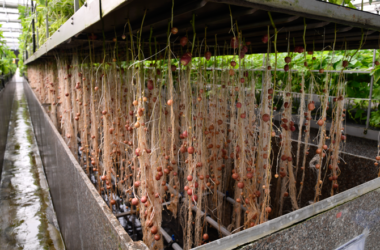In a world increasingly concerned with environmental sustainability, the search for renewable energy sources has never been more critical. Biofuels, derived from organic materials such as plants and algae, have emerged as a promising alternative to fossil fuels. This article will take you on a journey through the fascinating world of biofuels, exploring their types, benefits, challenges, and their pivotal role in a greener future.
What Are Biofuels?
1. Understanding the Basics
Biofuels are renewable energy sources derived from biological materials, making them an eco-friendly alternative to traditional fossil fuels. These fuels are produced through various processes, primarily from plants, animals, and microorganisms.
2. Types of Biofuels
There are several types of biofuels, including:
2.1. Ethanol
Ethanol is one of the most common biofuels and is primarily produced from crops such as corn and sugarcane. It’s widely used as an additive in gasoline, reducing greenhouse gas emissions.
2.2. Biodiesel
Biodiesel, made from vegetable oils or animal fats, is an excellent alternative to diesel fuel. It’s known for its low emissions and compatibility with existing diesel engines.
2.3. Biogas
Biogas is produced through the anaerobic digestion of organic materials like agricultural waste and sewage. It’s used for heating and electricity generation.
2.4. Algal Biofuels
Algal biofuels are derived from fast-growing algae. They have the potential to produce high yields and can be used for various applications, including transportation fuels.
Advantages of Biofuels
3. Environmental Benefits
3.1. Reduced Greenhouse Gas Emissions
Biofuels help mitigate climate change by emitting fewer greenhouse gases compared to fossil fuels. They are considered carbon-neutral, as the carbon dioxide released during combustion is offset by the carbon absorbed during plant growth.
3.2. Decreased Air Pollution
Biofuels produce fewer pollutants, such as sulfur and particulate matter, leading to cleaner air quality and improved public health.
4. Energy Security
Bio fuels reduce dependence on fossil fuels and enhance energy security, as they can be produced locally, reducing reliance on oil imports.
5. Economic Opportunities
The biofuel industry creates jobs and stimulates economic growth, particularly in rural areas where feedstock crops are cultivated.
Challenges in Biofuel Production
6. Feedstock Availability
6.1. Competition with Food Crops
The use of food crops for biofuel production can raise concerns about food security and drive up food prices.
6.2. Land Use Change
Converting land for biofuel feedstock cultivation can lead to deforestation and habitat loss.
7. Technical Challenges
7.1. Efficient Conversion Processes
Developing cost-effective and efficient conversion methods for biomass is an ongoing challenge.
7.2. Algae Cultivation
Algal biofuel production faces hurdles in optimizing algae cultivation and harvesting techniques.
The Future of Biofuels
8. Advances in Technology
Innovations in biofuel production techniques, including genetic engineering and biotechnology, hold promise for improving yields and sustainability.
9. Government Initiatives
Governments worldwide are investing in research and providing incentives to promote the use of bio fuels as part of their clean energy strategies.
Conclusion
Biofuels represent a vital component of our transition to a more sustainable energy future. Their ability to reduce greenhouse gas emissions, enhance energy security, and create economic opportunities makes them a compelling choice. However, addressing challenges related to feedstock availability and technical limitations is crucial. As technology advances and governments continue to support biofuel development, we can look forward to a greener and more sustainable world powered by bio fuels.
FAQs
Q1. Are biofuels completely carbon-neutral?
No, while bio fuels do reduce greenhouse gas emissions compared to fossil fuels, the complete carbon neutrality depends on various factors, including the feedstock source and production methods.
Q2. Can I use biodiesel in my regular diesel engine?
Yes, biodiesel is compatible with most diesel engines without requiring any modifications.
Q3. How do algae-based biofuels work?
Algae-based biofuels are produced from algae through a process called photosynthesis, where algae convert sunlight and carbon dioxide into lipids, which can be processed into biofuels.
Q4. Are there any government incentives for using biofuels?
Many governments offer incentives such as tax credits and subsidies to promote the use of bio fuels as part of their clean energy initiatives.
Q5. Are there any limitations to using biogas?
Biogas production is dependent on the availability of organic waste materials, which can be a limitation in some regions. However, it is a valuable source of renewable energy where suitable feedstock is abundant.
In conclusion, bio fuels hold immense potential to revolutionize the energy sector. Their numerous benefits and ongoing technological advancements make them a viable and sustainable solution in the quest for cleaner energy sources. As we continue to invest in research and development, biofuels will play a significant role in mitigating climate change and securing a greener future for generations to come.










